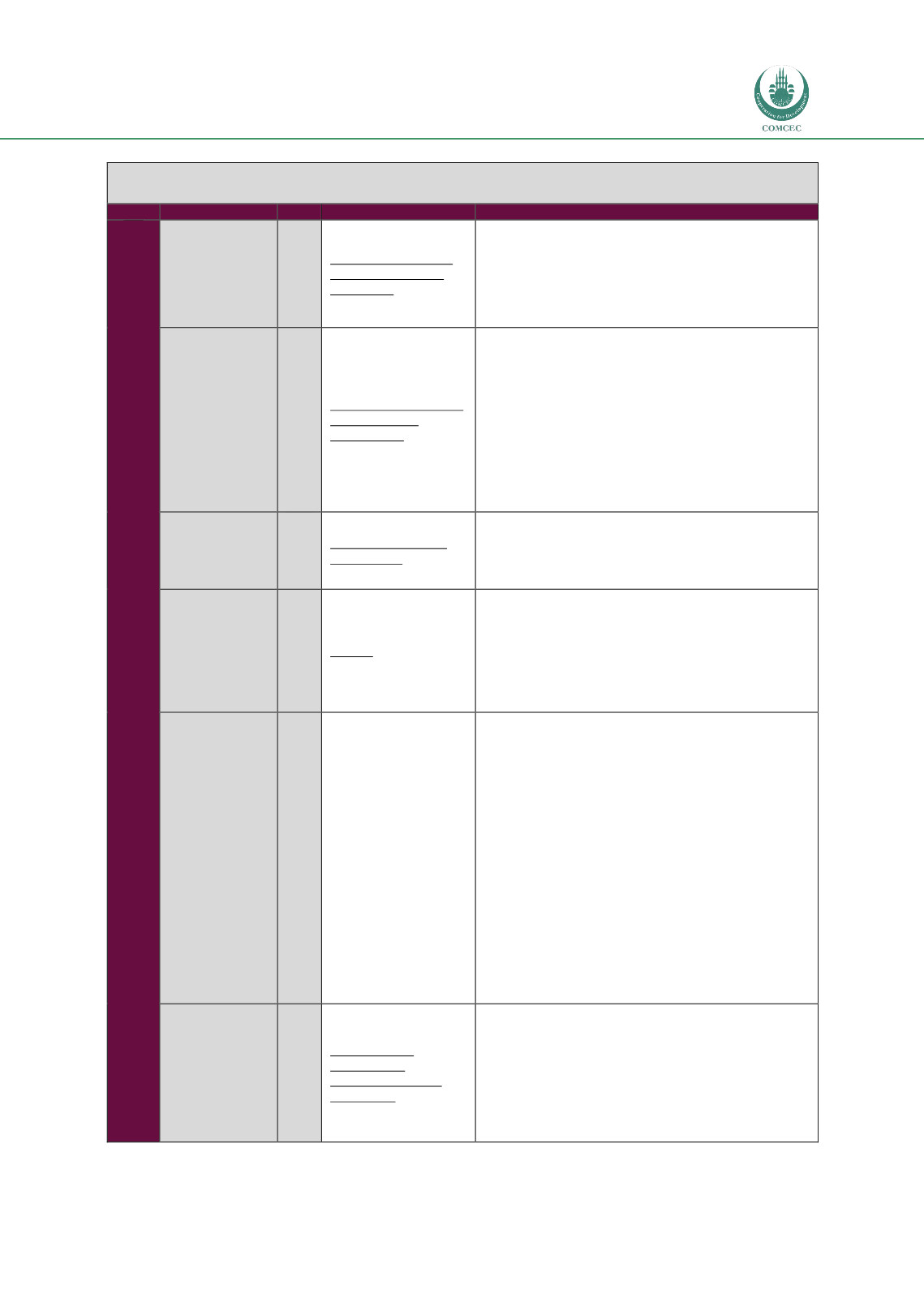

Improving Institutional Capacity:
Strengthening Farmer Organizations in the OIC Member Countries
97
3. Has the Government announced any recent policy initiatives explicitly designed to
encourage farmer organizations?
Group
Country
Y/N
Source
Comments
African Countries (cont’d)
Gambia
Official Website of the Gambian Ministry of AgricultureYes. The Department of State for Agriculture (DOSA) has
the Agricultural Policy and Regulatory Framework 2007,
which makes provision for the state to encourage the
organization and co-ordination of cooperatives. In addition
to this, there is the Gambia National Agriculture Investment
Programme, which finances the strengthening stakeholders
(such as FOs) engaged in key agriculture value chains.
Guinea
Agriculteurs Français et Développement InternationalYes. In 2009, the Guinean government launched a study
aiming to evaluate the methods used to provide consulting
services to farmers. The study's findings emphasized that
there was not one best way of providing consulting services
but that the engagement of FOs as key partners was
important. In 2007, the Guinean government adopted the
National Strategy for Agricultural Development - Vision
2015 (PNDA). The development of the strategy took three
years and FOs were heavily involved in this process. FOs
were represented in national debates around the strategy
and they were responsible for holding local meetings and
sessions with farmers all over Guinea.
Guinea-Bissau
International Labour OrganizationYes. The Government of Guinea-Bissau in December 2002
passed a new National Policy on Co-operative Development
based on ILO Recommendation 193. Guinea-Bissau became
the first ILO Member State to translate the new instrument
into law.
Mali
NyeleniYes. Mali is launching the Strategy of Agricultural
Development, which aims to promote the modernization of
family farming and local agriculture and to render it an
integral part of a competitive sub-regional economy. It is
also expanding the mandate of FOs to enable them to
identify farmers' problems, advocate for their interests,
collect and exchange information, and speak on behalf of
farmers in public fora.
Mozambique
USAID/ FAO
Yes, on paper but in practice, the priorities are not focused
on FO development/support. On paper, the country’s two
poverty reduction strategies, the Plan for Reduction of
Absolute Poverty called PARPA I and PARPA II, as well as to
PROAGRI (National Agricultural Development Strategy),
include FO support. However, the current policy framework
seems to be determined by the policies of the Action Plan for
Food Production (PAPA), 2008-2011. PAPA, being a
response to the current international food crisis, focuses
exclusively on basic food and oilseed crops as well as on
poultry and fisheries, and assigns a pro-active participatory
role for the state in processing and marketing, including
interventions to promote food self-sufficiency and market
stability. However, most programme initiatives around the
support of FOs in the country have been initiated by
international development agencies, NGOs and the private
sector. The commentary section highlights a number of
programmes by various international development
agencies.
Niger
United Nations Development Programme Climate CommunityIn 2003, the government of Niger adopted the National
Strategy for Rural Development (SNDR). The strategy's
approach was focused on improving food security and
alleviating poverty in rural areas. The first strategic pivot of
this strategy was the provision of economic opportunities as
well as technical training for farmers. The strategy also
emphasized the importance of helping farmers form
sustainable and well-managed organizations.

















